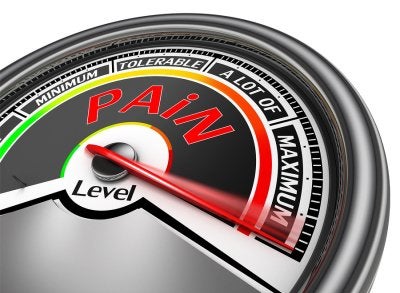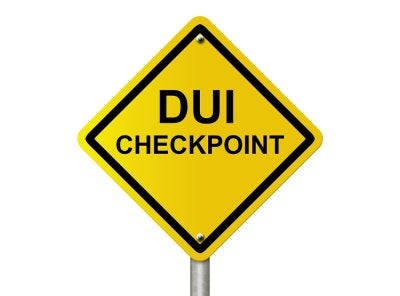-
What are the Requirements for Receiving Medical Marijuana in Maryland?
Maryland’s medical marijuana laws changed in 2014 when Governor Martin O’Malley signed House Bill 881 into law. Under the new laws, licensed cannabis dispensaries can provide qualifying patients with medical marijuana as an alternative treatment without concern about fines or other legal consequences. A medical marijuana lawyer in Rockville can help you set up a legal dispensary and sell cannabis to qualifying patients. The requirements for receiving medical marijuana in Maryland include:
Maryland Residency
Only Maryland residents are eligible to purchase medical marijuana from licensed dispensaries in the state. In addition to presenting a valid medical marijuana card, patients must also provide proof of Maryland residency. Acceptable proofs of residency include a driver’s license or other state-issued identification card, a passport, a utility bill, or a bank statement.Qualifying Condition
Maryland marijuana patients must possess a documented condition that has been clearly outlined by the Medical Marijuana Commission and Department of Health & Mental Hygiene’s list of qualifying conditions. Qualifying conditions include cancer, glaucoma, multiple sclerosis, HIV/AIDS, Hepatitis C, Crohn’s disease, Alzheimer’s disease, severe nausea, chronic pain, and epilepsy.
by the Medical Marijuana Commission and Department of Health & Mental Hygiene’s list of qualifying conditions. Qualifying conditions include cancer, glaucoma, multiple sclerosis, HIV/AIDS, Hepatitis C, Crohn’s disease, Alzheimer’s disease, severe nausea, chronic pain, and epilepsy. Application for Marijuana Card
An individual will need to submit an official application for a medical marijuana card to Maryland’s medical marijuana program. Legitimate medical records and written certification from a doctor must accompany the application as proof of a qualifying condition. Medical marijuana cards are issued by the Medical Marijuana Commission and Department of Health & Mental Hygiene after the application it approved and processed.If you need help complying with Maryland’s complex marijuana regulations, contact a law firm in Rockville that specializes in providing counsel on medical cannabis in the state. A criminal law attorney can also help you in the event that you unknowingly sell cannabis to anyone with an invalid marijuana card.
-
Preparing for Your Meeting with a Lawyer
If you’re facing legal troubles and seeking legal representation, make sure you are prepared for your first meeting with a lawyer in Rockville . Being unprepared can be a waste of time for both you and the lawyer, and it may even have an impact on the outcome of your case. In addition to basic contact information, you’ll want to provide your lawyer with a chronological summary of the facts in your case. Also make sure to bring any documents that relate to your legal matter, include contracts, photographs, accident reports, witness statements, and correspondences. Even if you don’t believe a document to be important, your criminal defense lawyer may find it incredibly valuable in mounting your legal defense.
It can also be helpful to prepare a list of goals that you want the lawyer to help you achieve. If you have any questions about what you should bring, call the defense attorney prior to your initial consultation.

-
Maryland’s DUI Laws
Being arrested for drunk driving in Maryland can have far-reaching and long-lasting consequences. Even first-time offenses can carry steep fines and prison time if convicted, so contact an experienced and aggressive DUI lawyer in Rockville if you have been charged with driving under the influence. To help you know where you stand, here’s a look at the different charges and penalties under Maryland law.
DUI vs. DWI
Driving under the influence (DUI) is the top alcohol infraction, and it means that your blood alcohol concentration (BAC) posted at a level of 0.08% or higher. People who end up on the lower end of the BAC spectrum but fail on a field sobriety test (administered by a police officer) are charged with driving while intoxicated (DWI). In defending against a DUI or DWI, your criminal defense lawyer will analyze the results of field sobriety tests and/or chemical tests to find weaknesses in the case against you. Your lawyer will use these findings to negotiate down during sentencing or have your case dismissed entirely.
driving while intoxicated (DWI). In defending against a DUI or DWI, your criminal defense lawyer will analyze the results of field sobriety tests and/or chemical tests to find weaknesses in the case against you. Your lawyer will use these findings to negotiate down during sentencing or have your case dismissed entirely. DUI Penalties
First offense DUI carries administrative license suspension penalties of six months. Reinstatement will require completion of an alcohol/substance abuse treatment program. An ignition interlock device may be mandated at the discretion of the courts upon reinstatement. First-time offenders also face incarceration for up to one year, with enhanced penalties of up to two years if transporting a minor at time of arrest. Fines and penalties for a DUI conviction amount to $1,000 for a first offense and are significantly higher for second and third offenses. A third offense also carries jail time of up to three years.An experienced DUI/DWI defense attorney in Rockville can help you avoid the most serious consequences of a drunk driving conviction. Schedule your initial consultation as soon as possible after arrest to give your lawyer ample time to formulate an effective defense strategy.
-
What Maryland Physicians Need to Know about Medical Marijuana Regulations
In July 2014, the state’s Medical Marijuana Commission released its initial draft of proposed rules for physicians participating in the medical marijuana program in Maryland. Even though the commission’s efforts are receiving mixed reviews, feelings toward medical marijuana in Rockville are mostly positive. The commission published these draft rules to draw feedback from Maryland residents and organizations that are concerned with the structure of the state’s new medical marijuana system.
Training requirement
The commission’s proposed rules have drawn some criticism from a leading advocate. Del. Dan K. Morhaim, a Baltimore County Democrat and the General Assembly’s only physician, objects to the
draft regulations for requiring training and continued education in the medical use of marijuana for physicians interested in providing patients with access to the drug. Morhaim questions the need for requiring physicians to take periodic medical marijuana courses when there is no similar requirement for more dangerous prescription drugs. Morhaim and others fear that this proposed requirement would expose physicians to federal prosecutions and discourage participation in the program.
Feedback
Even though the continuing education requirement has drawn criticism, the commission’s draft rules have received mostly positive reviews. In 2013, the Maryland General Assembly passed regulations so restrictive that no Maryland patient was able to legally acquire the drug. The problem in the previous draft of regulations was restricting the drug distribution to the state’s academic medical centers, none of which showed any interest in participation. The 2014 version removes this barrier and allows nearly any licensed physician to prescribe medical marijuana .

